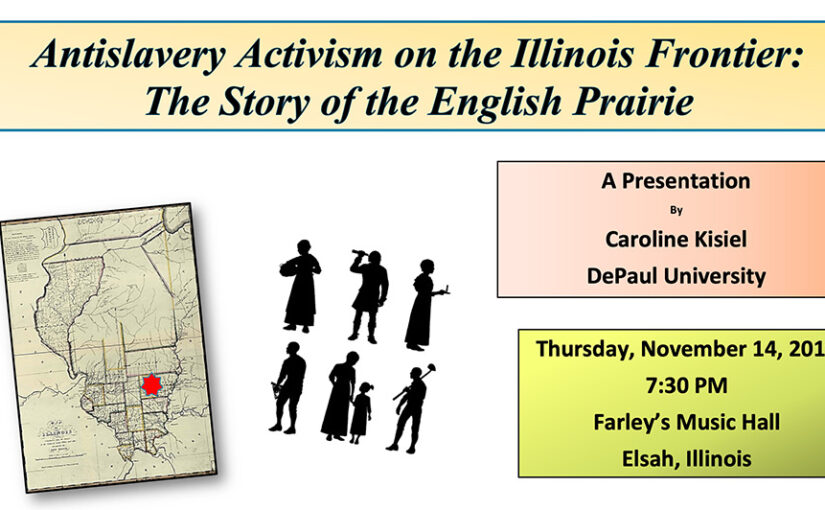In 1823, fourteen years before the murder of abolitionist Elijah Lovejoy in Alton, a fierce wave of antislavery sentiment among pioneer farmers in the Wabash River Valley prevented Illinois from becoming a slave state. These early settlers of our state were instrumental in voting down a referendum for a constitutional convention that would have undoubtedly legalized slavery Illinois.
These frontiersmen were followers of two English idealists, Morris Birkbeck and George Flower, who sought to establish utopian communities that were free from what they regarded as the economic and political tyranny of emerging industrialization. But Birkbeck and Flower soon came to realize they could not achieve their goal in an environment where slavery existed, and both men took steps to halt the advance of what historians now refer to as the ‘peculiar institution.’
Historian Caroline Kisiel will tell us about this largely forgotten but momentous episode in Illinois history in a presentation, “Antislavery Activism on the Illinois Frontier: The Story of the English Prairie,” at Farley Music Hall, 37 Mill Street, in Elsah, Thursday, November 14, at 7:30 pm.
Caroline Kisiel is coming to Elsah courtesy of the Illinois Road Scholars Speakers Bureau, a program of the Illinois Humanities. Illinois Humanities is a non-profit organization that promotes public dialogue and examination of issues important to sustaining democracy.
George’s presentation is one of this year’s Hosmer-Williams Lectures sponsored by Historic Elsah Foundation and underwritten by Liberty Bank: A United Community Bank.
The program is free and open to the public. Reservations are not required. Parking is available. Refreshments will be served following the lecture.
Attention media, print and otherwise, for additional information, contact George Provenzano, at [email protected].
